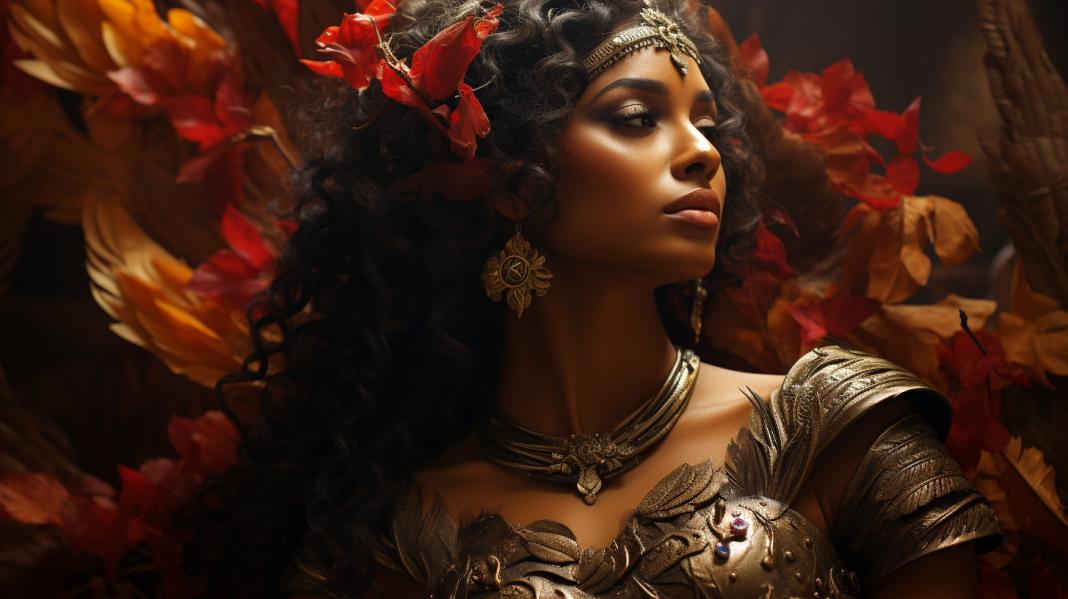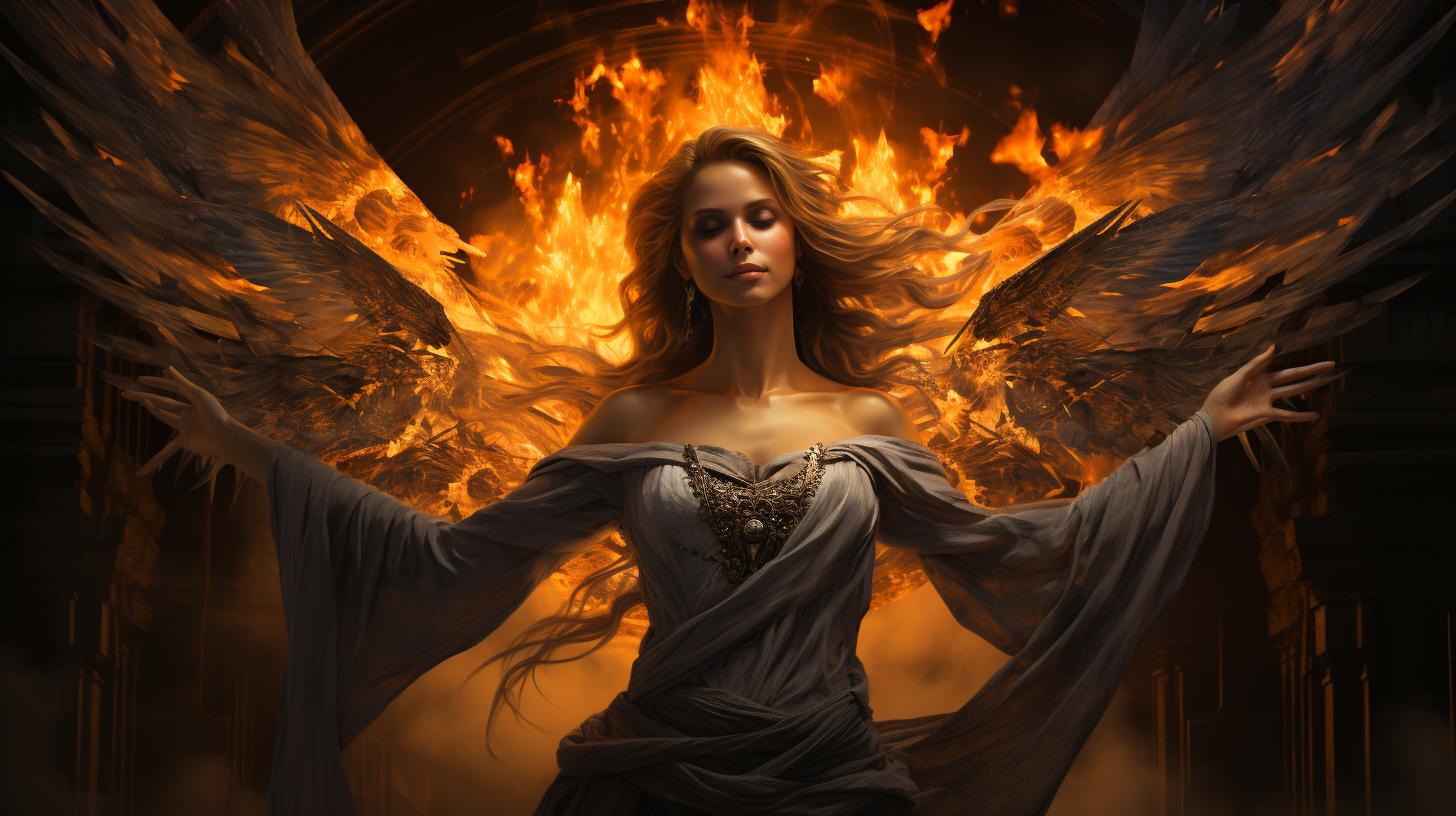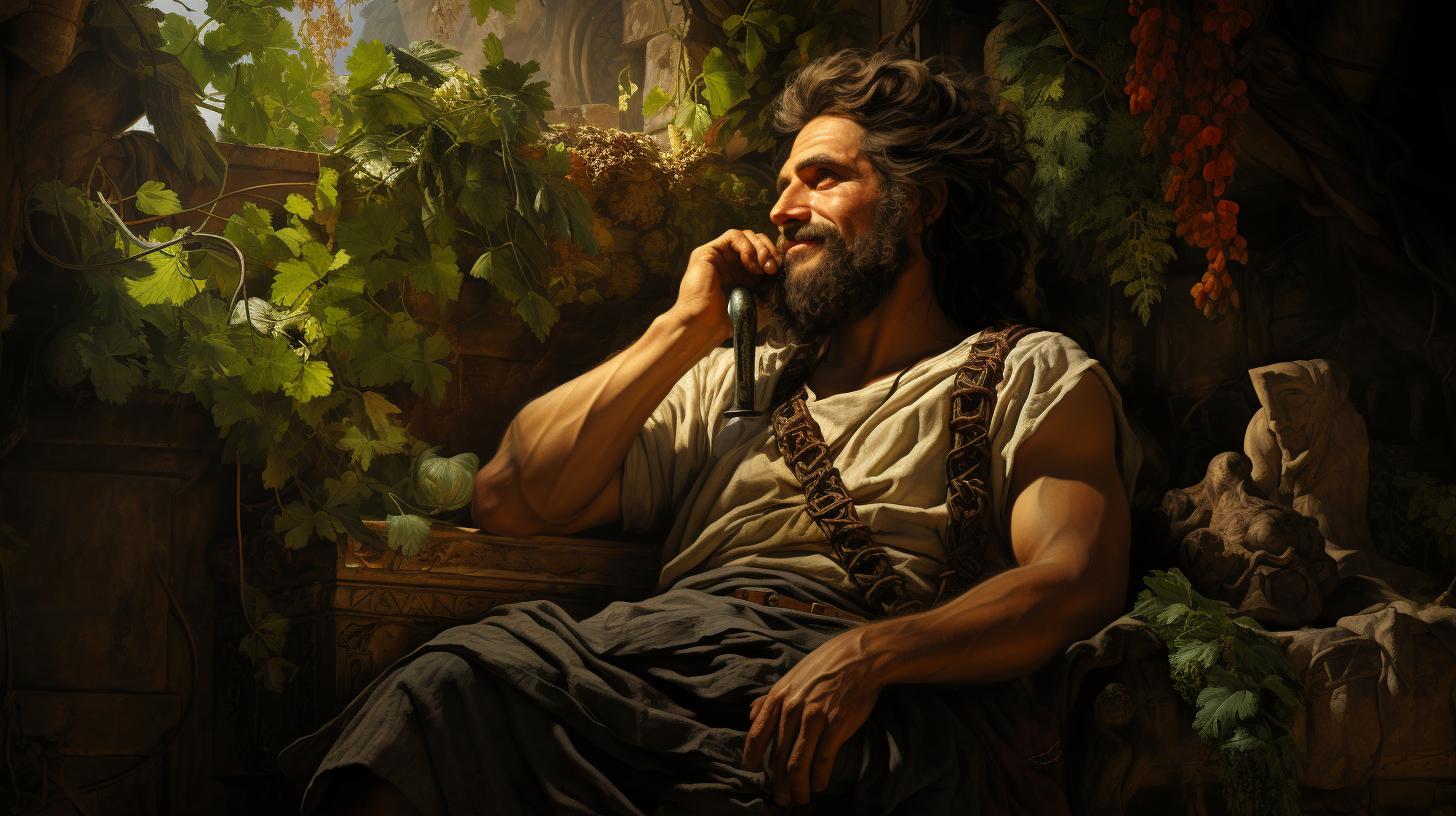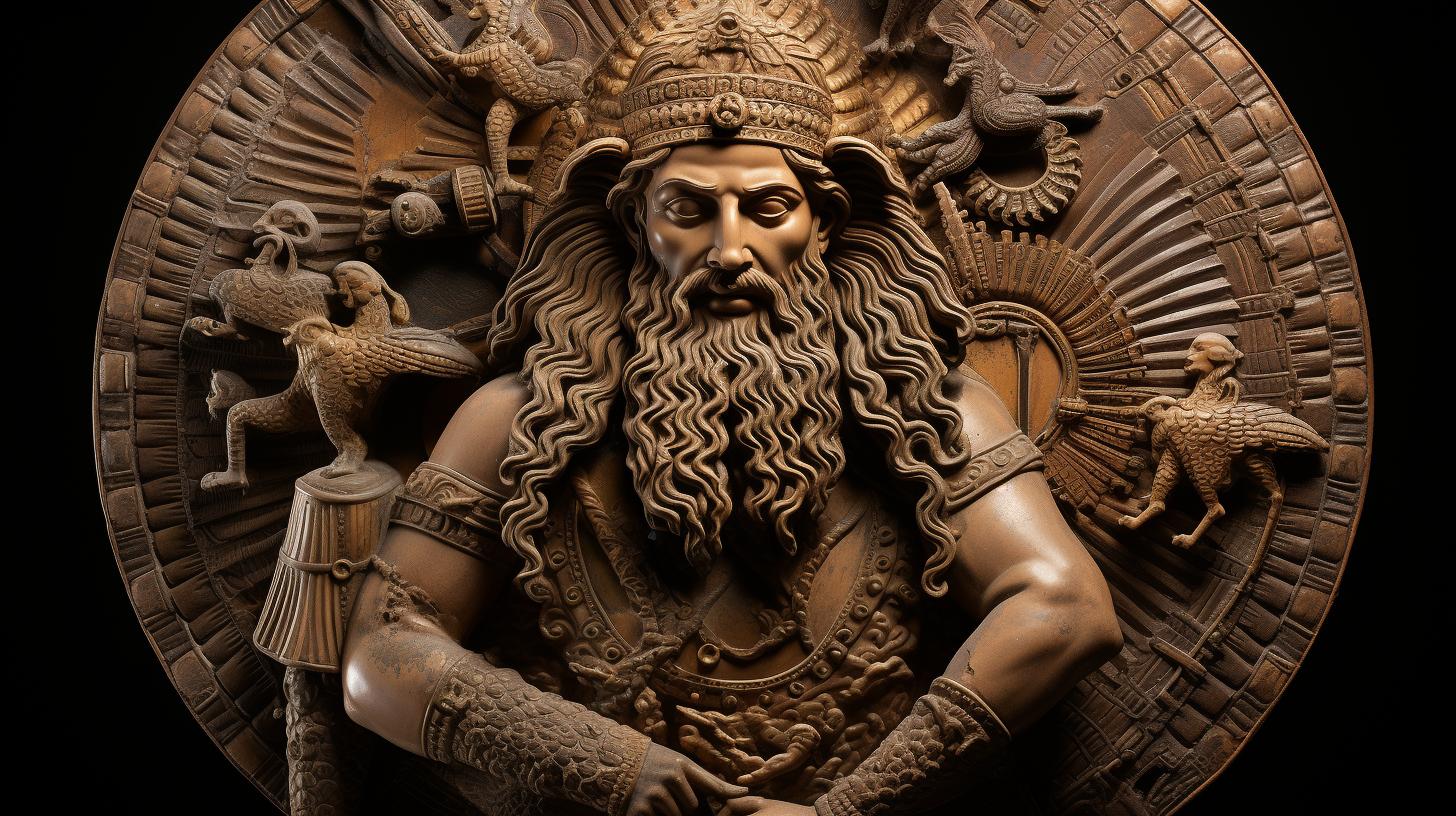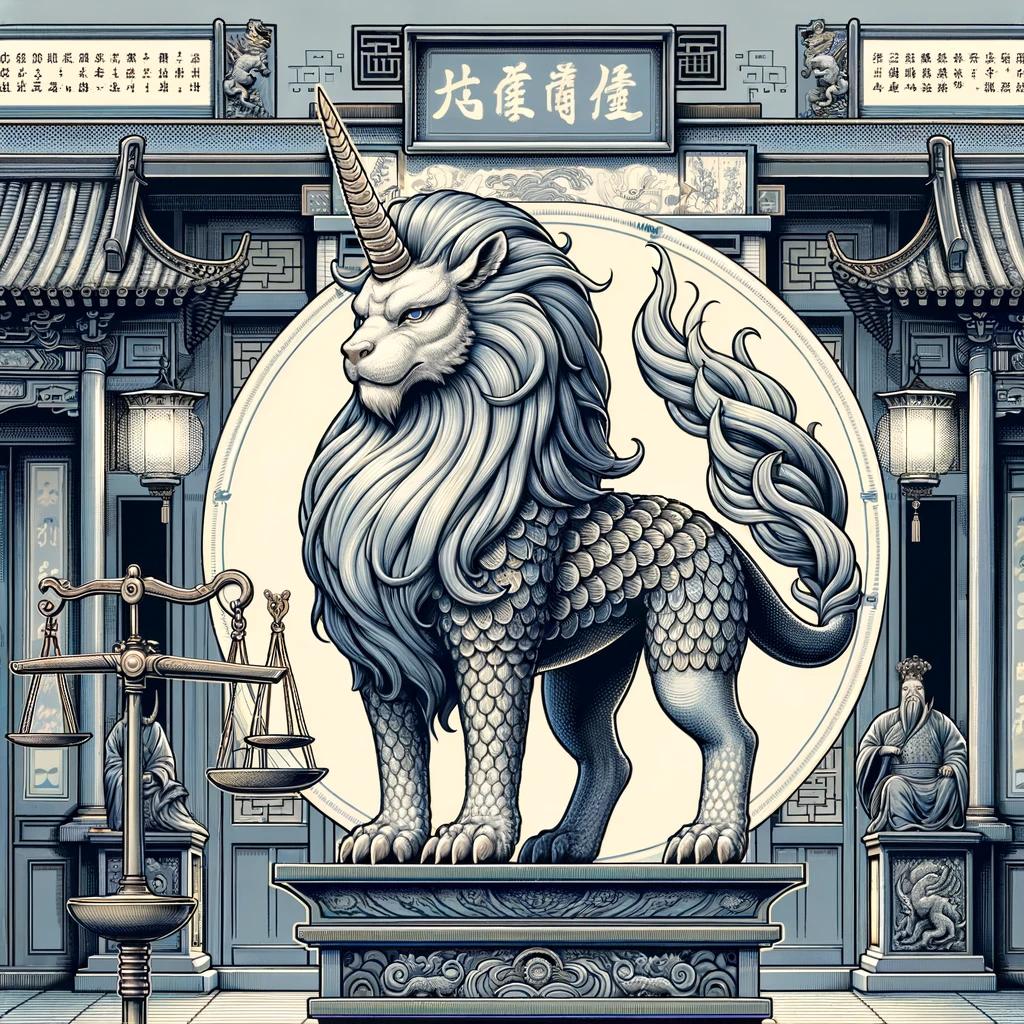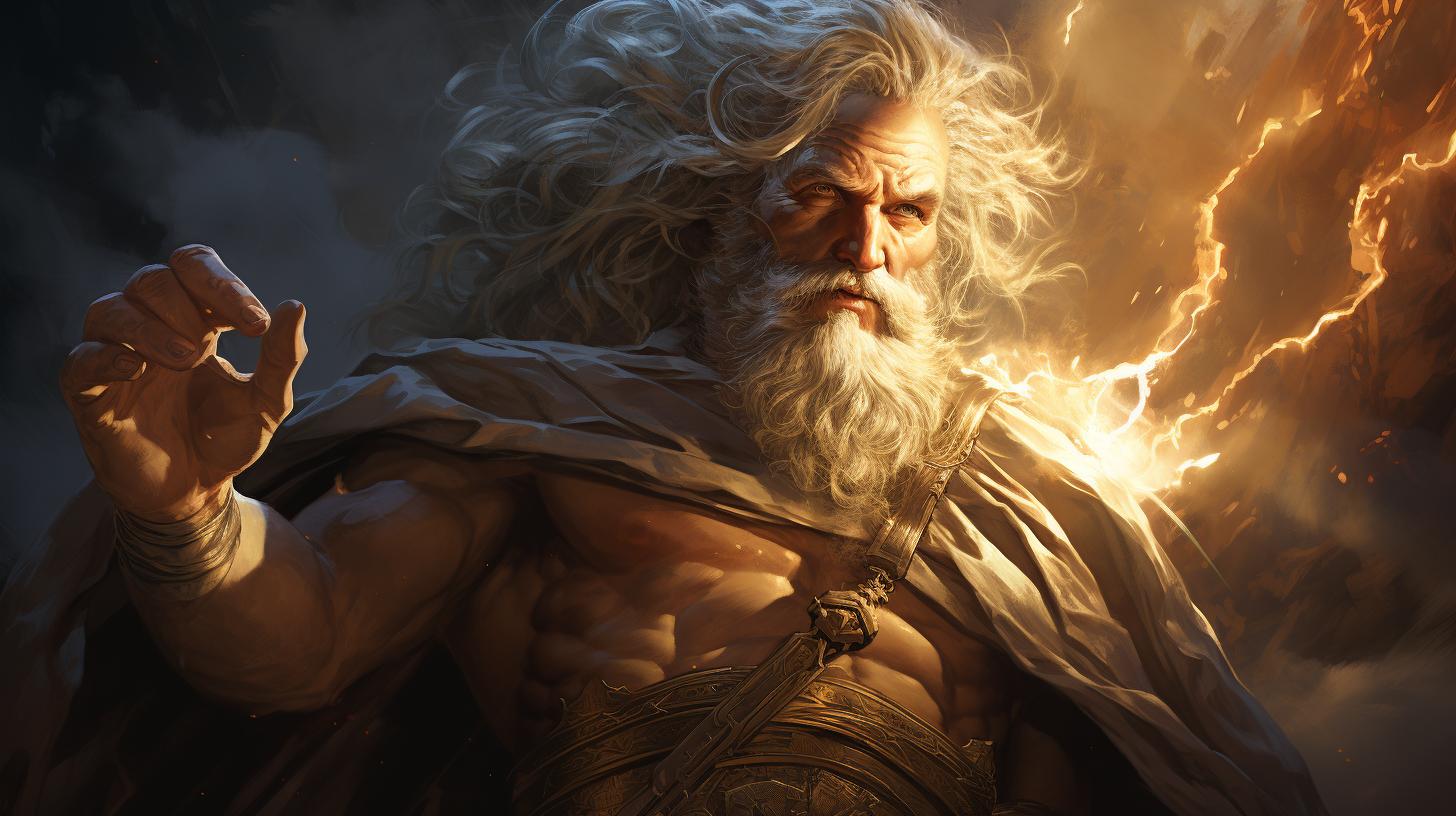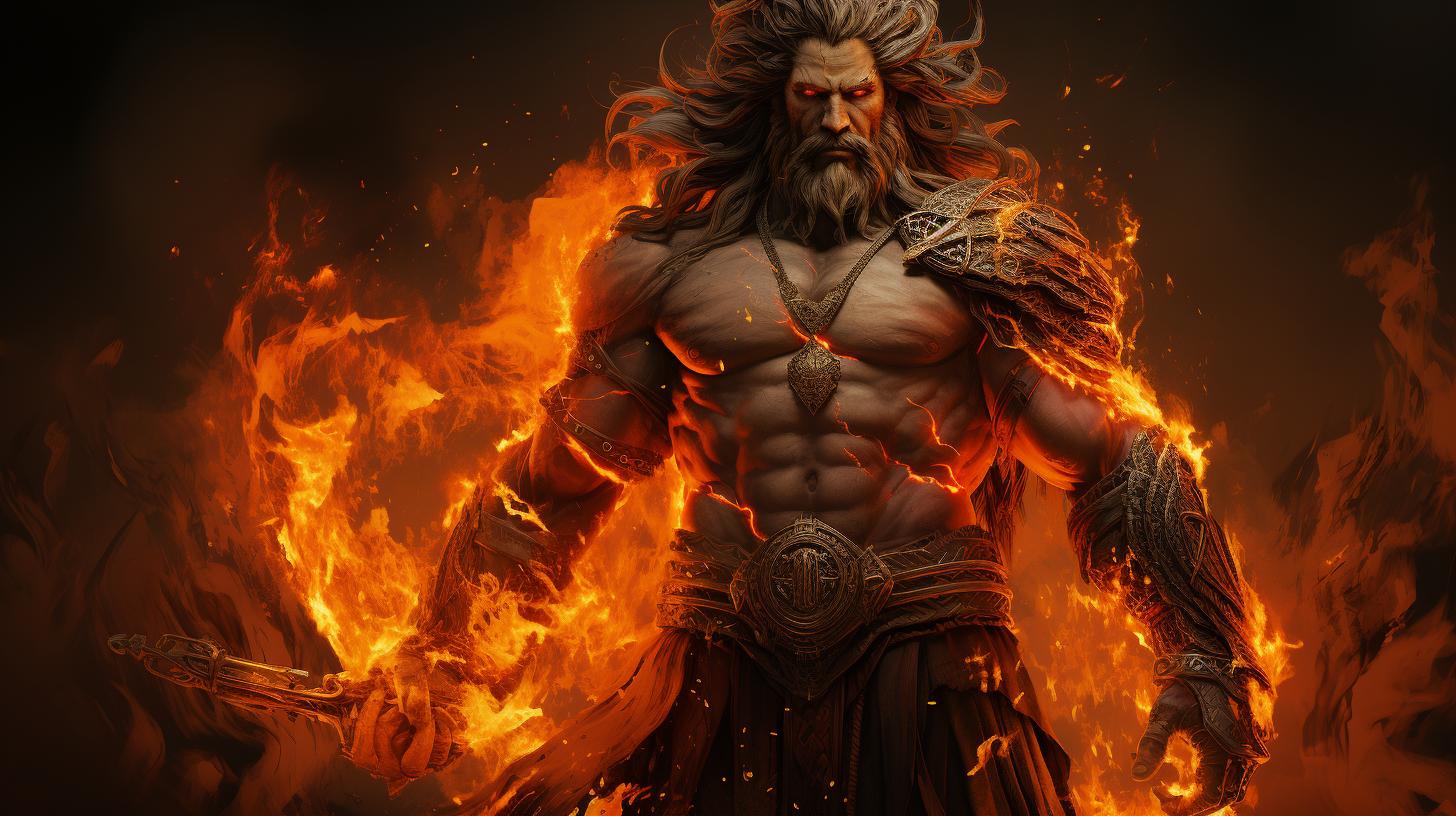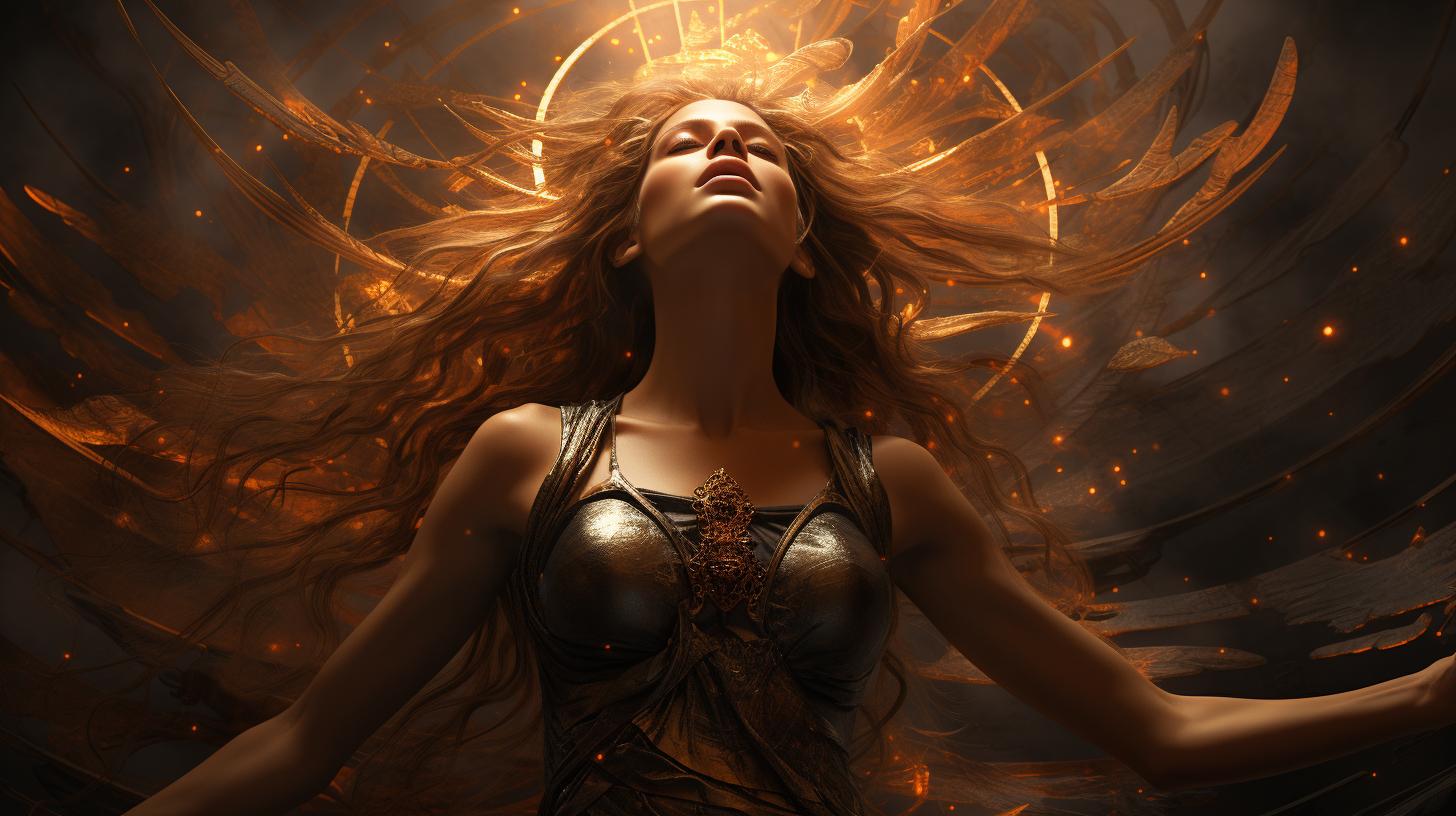Etruscan Goddess Thalna: Unveiling the Enigmatic Deity of Birth, Friendship, and Prophecy
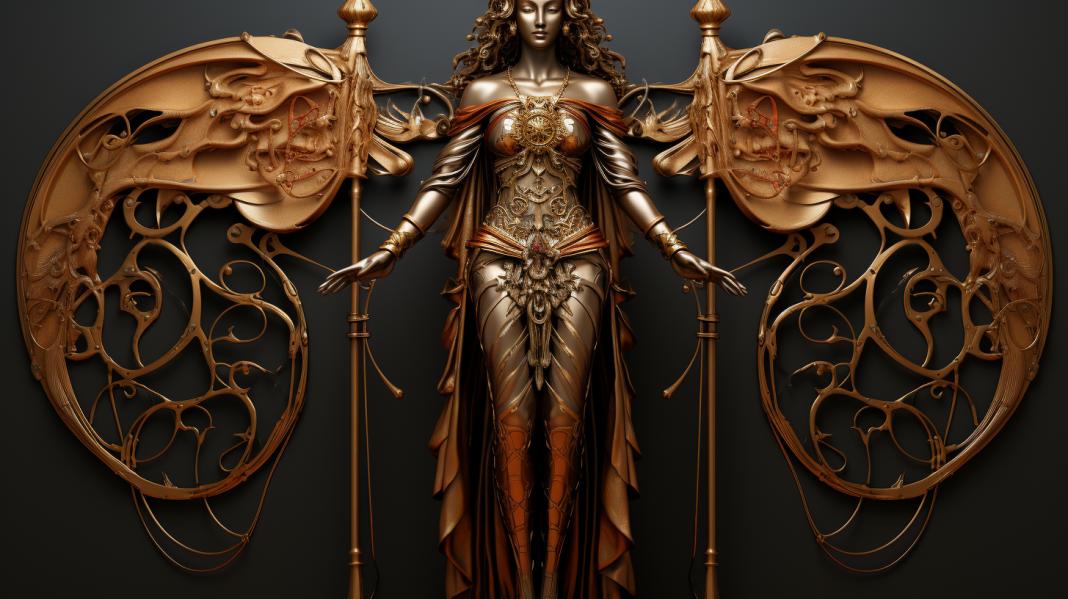
Etruscan goddess Thalna holds a significant place in Etruscan religion and mythology. As the deity of birth, friendship, and prophecy, Thalna’s gender is not clearly defined, reflecting the fluidity of Etruscan deities.
Often depicted alongside other Etruscan gods and goddesses like Turan, Tinia, and Menrva, Thalna is particularly prominent in Etruscan bronze mirrors, which showcase scenes related to childbirth and infancy.
She is also linked to other Etruscan and Greek deities, such as Tinia and Cupra. Thalna’s representation embodies youth, beauty, and hope, especially in the miraculous births of gods like Menrfa and Fufluns.
Etruscan Religion and Mythology
Etruscan religion and mythology form a fascinating and enigmatic part of ancient civilization. The Etruscans, a civilization that thrived in ancient Italy, held a complex pantheon of deities and revered them through rituals and worship.
Exploring the religious beliefs and mythological tales of the Etruscans provides valuable insights into their culture and worldview.
Overview of Etruscan Deities
The Etruscan pantheon consisted of a diverse array of gods and goddesses, with each deity serving a particular purpose and having specific attributes. These divine beings held great significance in the everyday lives of the Etruscans, influencing various aspects of human existence such as fertility, warfare, agriculture, and destiny.
Thalna: The Enigmatic Etruscan Goddess
Among the Etruscan deities, Thalna emerges as a captivating and mysterious goddess. Believed to be the deity of birth, Thalna possesses an ambiguous gender, mirroring the fluid nature of Etruscan divine beings.
Additionally, Thalna was associated with friendship and prophecy, showcasing her multifaceted role in the Etruscan belief system.
- Thalna as the Goddess of Birth
- Thalna’s Association with Friendship and Prophecy
Thalna’s Role and Attributes
Thalna’s primary domain lay in the realm of childbirth, where she played a crucial role in ensuring safe deliveries and the well-being of both mother and child.
Her presence in Etruscan bronze mirrors, depicting scenes related to birth and infancy, underscores her significance in the process of bringing new life into the world.
Beyond her role in childbirth, Thalna possessed influence over friendship and prophetic insights.
It is believed that Thalna facilitated and nurtured strong bonds among individuals, fostering harmony and camaraderie within Etruscan society. Additionally, Thalna exhibited an enigmatic ability to provide glimpses of the future, making her a revered figure in matters of prophecy.
Representations of Thalna in Etruscan Art
Etruscan art offers a visual testament to the significance of Thalna in the Etruscan society. Thalna frequently appears in depictions on bronze mirrors, where she is depicted observing scenes related to birth and infancy.
These artistic representations not only highlight Thalna’s role as a deity of childbirth but also emphasize her presence alongside other revered Etruscan gods and goddesses.
Thalna in Etruscan Bronze Mirrors
Etruscan bronze mirrors, adorned with intricate mythological scenes, prominently feature Thalna as an observer amidst various childbirth-related scenarios.
These mirrors serve as tangible evidence of Thalna’s importance within Etruscan society, emphasizing her role in guiding and protecting the miraculous event of birth.
Depictions of Thalna alongside Other Deities
In addition to her individual representations, Thalna is often portrayed alongside other deities such as Turan, Tinia, and Menrva. These artistic renderings symbolize the interconnectedness and collective worship of multiple divine beings in Etruscan religious beliefs.
Thalna’s Connection with Other Etruscan and Greek Deities
Thalna’s divine associations extend beyond the borders of Etruscan mythology, intertwining her identity with other gods and goddesses from both Etruscan and Greek pantheons.
Thalna’s Relationship with Tinia
In Etruscan mythology, Thalna has been linked to being the spouse or consort of Tinia, the supreme god in the Etruscan pantheon. This connection signifies Thalna’s close association with power, authority, and divine hierarchy.
Thalna as a Spring Manifestation of Cupra
Some interpretations suggest that Thalna may represent a spring manifestation of Cupra, a goddess equivalent to Hera or Juno in Greek and Roman mythology. This association connects Thalna with concepts of renewal, growth, and blossoming.
Thalna’s Role and Attributes
Thalna, the enigmatic Etruscan goddess, played a significant role in the ancient civilization’s religious and mythological beliefs. Let’s explore her distinctive attributes and the roles she embodied.
Thalna as the Goddess of Birth
Thalna held a pivotal position as the goddess of birth in Etruscan culture.
Her presence brought hope and assistance during childbirth, ensuring the safe delivery of newborns. Considered the divine protector of mothers and infants, Thalna’s influence extended beyond the physical act of giving birth.
She represented the life-giving force and the miraculous nature of creation.
Thalna’s Association with Friendship and Prophecy
Beyond her role as the goddess of birth, Thalna was also closely associated with friendship and prophecy in Etruscan mythology. She stood as a symbol of enduring bonds between individuals and communities, fostering harmony and unity.
Thalna’s presence brought forth the power of prophecy, offering insights into the future and guiding decision-making.
- Thalna’s association with friendship emphasized the importance of strong social connections and support networks in Etruscan society.
- Her role in prophecy showcased the belief in divine communication and the ability to understand and navigate the uncertain path ahead.
Thalna’s multifaceted nature encompassed various aspects of human experience, from the miracle of birth to the significance of friendship and the insight into the future.
Representations of Thalna in Etruscan Art
Thalna, the enigmatic Etruscan goddess, is vividly portrayed in various artistic mediums, providing insights into her significance within Etruscan culture. Her depictions in Etruscan art, especially on bronze mirrors, offer a glimpse into her role and attributes.
Thalna in Etruscan Bronze Mirrors
Thalna’s presence in Etruscan bronze mirrors is captivating. These mirrors, adorned with intricate mythological scenes, depict Thalna attentively observing moments of childbirth and infancy. Such portrayals on these coveted mirrors highlight the reverence and importance bestowed upon Thalna as the goddess of birth.
Depictions of Thalna alongside Other Deities
Thalna often appears side by side with other revered Etruscan deities like Turan, Tinia, and Menrva in various artistic representations. These depictions showcase Thalna’s association with friendship, communication, and divination.
The juxtaposition of Thalna with these deities emphasizes her interconnectedness in the Etruscan pantheon and underscores the significance of her presence in ancient Etruscan culture.
Thalna’s Connection with Other Etruscan and Greek Deities
Thalna, the enigmatic Etruscan goddess, has significant connections with other deities in both Etruscan and Greek mythology.
These connections shed light on her role and importance within the pantheon of gods and goddesses.
Thalna’s Relationship with Tinia
Thalna is often associated with Tinia, the supreme god in Etruscan mythology, and some sources even identify her as his wife or consort. This connection indicates Thalna’s elevated position among the deities and suggests her involvement in the divine hierarchy.
Thalna as a Spring Manifestation of Cupra
It has been suggested that Thalna may be a spring manifestation of Cupra, a goddess equivalent to Hera or Juno in Greek and Roman mythology. This association with Cupra further emphasizes Thalna’s connection to fertility and growth, attributed to her role as the goddess of birth.
Thalna and the Etruscan Society
Thalna, the enigmatic Etruscan goddess, held a significant role within Etruscan society and culture. Her presence and influence spanned various aspects of daily life, further deepening the reverence for her divine nature.
Thalna’s Importance in Etruscan Culture
As the goddess of birth, friendship, and prophecy, Thalna played a vital role in the Etruscan society. Expectant mothers sought her blessings and guidance during childbirth, as her divine presence provided comfort and assurance.
Thalna’s association with friendship highlighted her role in fostering harmonious relationships among individuals, promoting unity within the community.
Moreover, Thalna’s connection with prophecy showcased her significance as a divine oracle. Etruscans believed in her ability to foretell the future, seeking her insights for guidance and decision-making in various aspects of life.
Thalna’s influence extended beyond the realm of physical existence, shaping the spiritual and social fabric of the Etruscan civilization.
Thalna’s Role in Miraculous Births of Gods
One remarkable aspect of Thalna’s role in Etruscan society was her involvement in the miraculous births of gods. She witnessed and supported the extraordinary emergence of deities like Menrfa and Fufluns, symbolizing the eternal cycle of life and divine intervention.
Thalna’s presence during these “miracle” births showcased her as a hopeful figure, nurturing the belief in the extraordinary and the awe-inspiring wonder of creation.
Through her association with such remarkable events, Thalna cemented her revered status and became a source of inspiration for Etruscan society.
Her depiction in art and mythology emphasized her role as a bringer of blessings and a guardian of life’s extraordinary moments.
.

